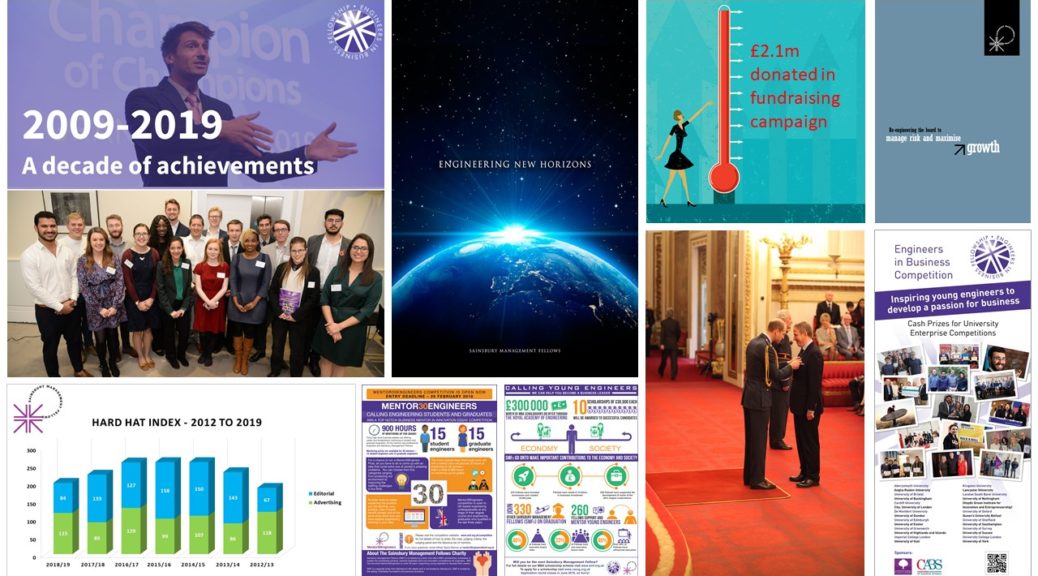
By Nic Renard, (CEng MEng Hons, Imperial College London), The Wharton School, University of Pennsylvania
“For some people, an MBA is something that was always going to be a part of their career – a rung in the ladder that they would plan for years in advance. My journey was a little different. I’ve always loved being an engineer, but after working for eight plus years in the same company I felt the need to make a change. Society needs to evolve, and I want to play a part in driving that evolution. To achieve that, I knew I would need to develop my entrepreneurial skills, deepen my understanding of digital technologies and equip myself with the business know-how to kickstart the next chapter of my career. That’s when I decided to apply for an MBA. Having gone through the application process, I thought I would share my experience of tackling the MBA admissions essay as this may help aspiring applicants.
Being true to yourself
“The MBA admissions essay is important for lots of reasons, but ultimately, it’s about getting to know the candidates and their motivations for wanting to do an MBA. It’s very easy to fall into the trap of writing what you think the admissions team wants to hear – if you catch yourself doing that, take a step back and do some more thinking.
“First, it’s very difficult to persuade somebody that you’re something you’re not, and sooner or later you’ll get caught (probably during the interview). The admissions team is very thorough, and reviews thousands of applications each year, so are adept at spotting lack of authenticity; people that present themselves in a way they think will please the admissions team. Second, the essays are a fantastic opportunity for you to reflect on your career journey and your next steps. Approach the essay as a ‘thinking tool’ – use it to dig deep and reflect on what you have achieved so far and where you want to go next in your career. If you don’t figure out where you want the MBA to take you, you’ll end up trying to recruit for consulting, banking and big tech all at the same time!
“For me, the admissions essay was a chance to sharpen my career plan. It also helped me focus my time and attention on the right activities at Wharton. When you start at your chosen school, you will find so many opportunities at your feet that you will need a clearly defined set of goals to choose the right ones and make the most of your time at b-school.
Putting pen to paper
“The admissions essay will force you to think seriously about yourself and your career. I found it an interesting exercise, and I learned a few things about myself that might otherwise have slipped under the radar. For weeks, I discussed what I was going to write with my wife, parents and friends, and this helped me to cut through the noise and get to the heart of what I wanted to say. I did find the actual writing of the essays and staying within the word limit a challenge, but it was made immeasurably easier by first figuring out my story and what I wanted to say.
“Coming from an engineering background there were very few people in my network that had gone through the MBA applications process to whom I could go for advice. At the time I was concerned about this, but it was a blessing in disguise as it forced me to focus entirely on what I wanted to say rather than what the admissions team might want to hear. By all means look to others for advice before putting pen to paper, but make sure your essay is yours and yours alone.
Structuring your essays
“Essays traditionally have a set layout with an introduction, body and conclusion. This is important, but the format your MBA admissions essays take will largely depend on your chosen topic and your individual story. There is no fixed format or ‘top ten things that need to be included in your essay’.
“That said, the admissions team will be looking for certain traits in your essay. They will want to see examples of leadership, particularly in extra-curricular environments. They will also want to see evidence of proactive contributions in team settings, as well as any industry skills you may have picked up on that might not be explicitly referenced on your resume. Different programmes will have different criteria by which they assess your application, so this will impact the layout and weighting of topics.
“Take care how you express your accomplishments. You need to balance a fine line between singing your own praises and conveying the uniqueness of your application. Be wary of superlative language or anything that feels boastful but do bear in mind that it is a competitive application and the admissions team does want to hear about your accomplishments in the right way.
Making it relevant
“One of the most important aspects of writing an MBA admissions essay is tailoring it to each business school you are applying to. Different schools have different requirements, preferences and weightings, and programmes can vary widely too. Some schools might be looking for academics, others might be more interested in entrepreneurs, some might want natural leaders or industry professionals etc.
“It’s also a good idea to get a sense of where each school’s programme is trying to go, for example, is it trying to develop a new type of major? Does it want to improve its finance rankings? Has it recently opened a new environmental research centre? All of this should be easy to research online and will help you understand what your chosen business schools might be looking for in candidates. Going back to the essay structure, this research could hugely influence the weighting of your essays and how you write them.
Backing achievements up
“One of the unwritten rules for admissions essays is back up everything you say with real-world examples. No MBA administrator is going to be impressed with a well-written essay that doesn’t demonstrate the talents and skills you claim to have. For example, instead of writing “I’m a passionate team player who leverages everyone’s skills in every project I undertake,” you should write something along these lines: “While working on project X, I personally sought to bring people from departments Y and Z into the team because their skills in A, B and C complemented mine and enabled us to tackle aspect D of the project and complete it X months early.” I think you will agree that the latter example is a more persuasive way of highlighting a relevant skill.
“On the whole, I think the key to unlocking your MBA future and submitting a brilliant admissions essay is simply figuring out why you want to do an MBA and what you bring to your business school of choice. If you take nothing else away from this article, this alone should be enough to set you up for success.”
How to Apply for the Sainsbury Management Fellows MBA Scholarship
If you are a professional engineer considering an MBA as one of the stepping-stones towards a business leadership career, visit our MBA scholarship application page, you could become one of our successful awardees –the individual scholarship is £50,000 and we award ten of these every year.























